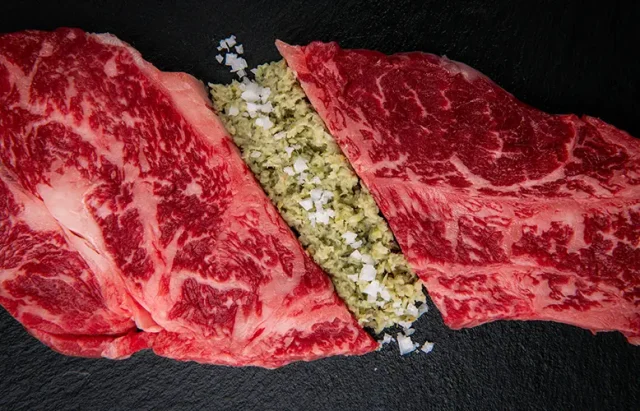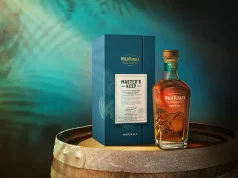
Australia’s rise as a powerhouse in Wagyu beef production did not happen overnight. The first Wagyu cattle were imported from Japan in the early 1990s, and at the time few could predict the profound influence they would have on the country’s beef industry. Australian ranchers recognized that Wagyu’s unmatched marbling and tenderness could redefine premium beef for global consumers. Over three decades, they developed breeding and feeding techniques uniquely suited to Australia’s varied landscapes.
What sets Australia apart is how quickly producers adopted meticulous genetic programs to preserve authentic Wagyu bloodlines. Early pioneers invested in fullblood Wagyu genetics and dedicated themselves to selective breeding strategies that mirrored Japan’s attention to lineage purity. This methodical approach laid the foundation for a high-quality Wagyu herd capable of meeting stringent global standards.
Australian ranchers also embraced innovation in pasture management and feedlot protocols to nurture the delicate intramuscular fat that defines Wagyu’s rich flavor. By combining science-driven breeding programs with an unwavering respect for traditional husbandry, they have secured a foothold in the premium beef market. This evolution reveals why Australia is now recognized as one of the leading Wagyu producers outside Japan.
Breeding Excellence and Genetic Integrity
Breeding is at the heart of Australia’s Wagyu success. Producers have implemented advanced genetic testing to ensure that Wagyu cattle maintain optimal traits such as marbling, tenderness, and flavor depth. By leveraging data-driven evaluations, breeders identify animals that carry desirable markers, thereby improving each generation’s quality without sacrificing animal welfare.
A distinguishing factor in Australia’s Wagyu breeding strategy is the emphasis on fullblood herds. Fullblood Wagyu cattle possess 100 percent Japanese genetics and are prized for producing the most consistent and premium cuts. Crossbreeding programs, while common elsewhere, are managed carefully in Australia to maintain superior marbling while offering more accessible price points to diverse markets.
This commitment to genetic integrity not only preserves Wagyu’s reputation but also fuels the nation’s export ambitions. International buyers often view genetic transparency as a sign of quality and authenticity. Australian producers, by adhering to these standards, position themselves as trusted suppliers for discerning chefs, restaurateurs, and luxury consumers around the world.
Feeding Programs that Shape Flavor
The flavor of Wagyu beef owes as much to feeding practices as it does to genetics. In Australia, ranchers have perfected grain-feeding regimens that last significantly longer than conventional beef production cycles. These extended feeding periods, sometimes exceeding 400 days, allow cattle to develop the signature marbling that melts into succulent tenderness when cooked.
Australian feedlots focus on precision nutrition, often blending barley, wheat, corn, and other grains to balance energy intake with digestive health. These carefully designed rations are tailored to different growth stages of Wagyu cattle, ensuring consistent fat distribution and a delicate flavor profile. Such attention to detail sets Australian Wagyu apart from competitors relying on shorter, less specialized feeding programs.
Sustainability considerations also influence feeding strategies. Producers are increasingly investing in feed efficiency and waste reduction technologies to minimize environmental impact while maintaining high standards of animal health. This forward-thinking approach enhances both the quality and the ethical reputation of Australian Wagyu beef in the international marketplace.
Global Demand and the Role of Exports
Australia’s Wagyu industry has thrived largely because of its alignment with international markets. Demand for premium beef surged in regions such as North America, the Middle East, and Southeast Asia, where fine-dining establishments and upscale retailers regard Australian Wagyu as a benchmark of quality. Export strategies have become essential in linking rural producers with global culinary capitals.
Producers work closely with export agencies and logistics networks to ensure that Wagyu beef maintains its integrity during long-distance transportation. Strict cold chain management and advanced packaging techniques safeguard the beef’s marbling and texture from farm to restaurant. This emphasis on quality control reassures international buyers that they are receiving beef of exceptional consistency.
In this context, Australian Wagyu has also become more accessible to consumers in the United States through reputable online platforms. For example, premium e-commerce destinations like Destination Wagyu have helped bridge the gap between discerning American buyers and Australia’s finest Wagyu cuts. This growing digital marketplace reflects how Australian producers have adapted to evolving consumer expectations beyond traditional wholesale channels.
Sustainability and Animal Welfare Innovations
A defining feature of Australia’s Wagyu industry is its commitment to sustainable farming and animal welfare practices. Producers recognize that long-term success depends on maintaining harmony with the environment while ensuring humane treatment of livestock. This ethos has driven the adoption of low-stress handling techniques, improved water management systems, and rotational grazing practices that protect soil health.
Research and development in methane reduction and carbon sequestration have become priorities for many Wagyu operations. By integrating these climate-conscious measures, Australian producers not only mitigate their environmental footprint but also align with consumer preferences for responsibly raised beef. Sustainability certifications have become an important marketing tool, boosting the credibility of Australian Wagyu in discerning export markets.
The focus on animal welfare goes hand in hand with quality outcomes. Healthy, stress-free cattle produce superior marbling and flavor, proving that ethical treatment is not merely a moral obligation but a practical investment in product excellence. This combination of sustainable stewardship and premium production has strengthened Australia’s position as a global leader in high-end beef.
Culinary Reputation and Chef Partnerships
Australia’s Wagyu beef has earned the respect of top chefs around the world who seek consistency in taste, texture, and presentation. The culinary reputation of Australian Wagyu is built on decades of collaboration between producers and the restaurant industry. Chefs value the beef’s balance of rich marbling and clean, buttery flavor that complements a wide range of cuisines.
Restaurants often feature Australian Wagyu in tasting menus and high-end steak experiences, showcasing its versatility across cooking methods from charcoal grilling to sous-vide. This adaptability makes it a preferred choice in Michelin-starred establishments where precision and flavor integrity are paramount. The partnership between chefs and producers ensures that feedback from the kitchen informs on-farm practices, creating a continuous cycle of improvement.
In addition to fine dining, the rise of food media and cooking shows has elevated the profile of Australian Wagyu among home cooks. Consumers eager to replicate restaurant-quality dishes seek guidance on selecting the right cuts and cooking techniques. This growing culinary enthusiasm has expanded the market and further cemented Australia’s influence in the global Wagyu narrative.
The Future of Australian Wagyu Excellence
Looking ahead, Australia’s Wagyu industry faces both opportunities and challenges as it strives to maintain its edge in an increasingly competitive market. Continued investment in genetics, sustainability, and advanced feeding technologies will be critical in meeting growing international demand while keeping environmental impacts in check. Innovation in these areas will likely define the next era of Wagyu excellence.
The adoption of blockchain and digital traceability tools is expected to play a key role in guaranteeing transparency for consumers. By tracking each animal’s journey from pasture to plate, Australian producers can assure buyers of authenticity and quality. This technological evolution could further distinguish Australian Wagyu as a premium product with verifiable provenance.
Ultimately, Australia’s success story in mastering Wagyu beef is a testament to the country’s willingness to blend tradition with innovation. From its careful breeding programs to its cutting-edge sustainability initiatives, the industry continues to set a high standard for others to follow. The future promises a deeper global appreciation for Australian Wagyu and its enduring contribution to the art of exceptional beef.





